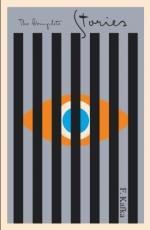|
This section contains 8,202 words (approx. 28 pages at 300 words per page) |

|
SOURCE: "The Most Valuable Thing: James on Death," in Modern Fiction Studies, Vol. 22, No. 4, Winter, 1976, pp. 507-24.
In the following essay, Hartsock focuses on Henry James's intellectually pragmatic perception of death as a "termination " and his emotional faith in the supreme value of life.
Everyone has recognized that for Henry James the living of the fully conscious life is a supreme value. Critics speak of his "ordeal of consciousness," his "religion of consciousness," his "idea of consciousness.'" James himself had asked, " . . . what is morality but high intelligence?"2 and he had shown characters, like Lambert Strether or Maggie Verver, achieving creative awareness and others, like John Marcher or Merton Densher, achieving it too late. But, despite the general recognition of this theme in the fiction, there is still a profound disagreement about what it means in terms of a philosophic stance. No one expects a novelist to be...
|
This section contains 8,202 words (approx. 28 pages at 300 words per page) |

|


